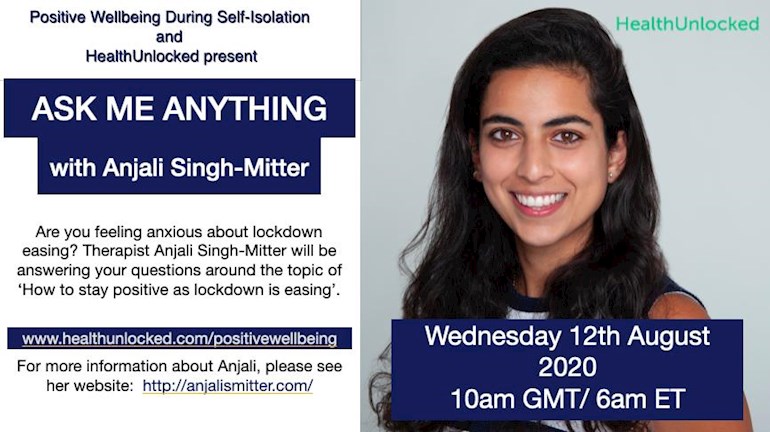Ask an expert anything. Join the conversation by replying to this post.
Anjali Singh-Mitter is a qualified therapist with expertise in CBT and Hypnosis. Anjali will be able to to give you tangible tools on how to cope with potential anxieties surrounding COVID-19 and re-entering a 'new normal' life. You can take these skills away and implemented into your routines offline.
[B]Our Ask Me Anything (AMA) with Anjali Singh-Mitter is starting now.[B/]
We recommend that you click the “Follow Post” button directly underneath the official post and next to the “Like” button so that you will receive notifications of what questions have been posted and what the replies are, in case your question has already been asked by another member. In order to make sure that you are seeing the most up-to-date questions and answers, you will need to continue to refresh your browser to show all of the replies.
At 11am, at the end of the AMA, we will lock the thread, so that no more questions can be posted in the thread. If you miss the AMA, we will keep the post on the community so that you can see all of the questions and answers from the session!
Guidelines for Ask Me Anything (AMA):
1. Please try to keep questions general, and not overly specific to your personal situation. We want these questions and answers to provide useful information to the entire community.
2. Please try to limit your questions and responses to three sentences.
3. As always, please be respectful of other members and their questions.

